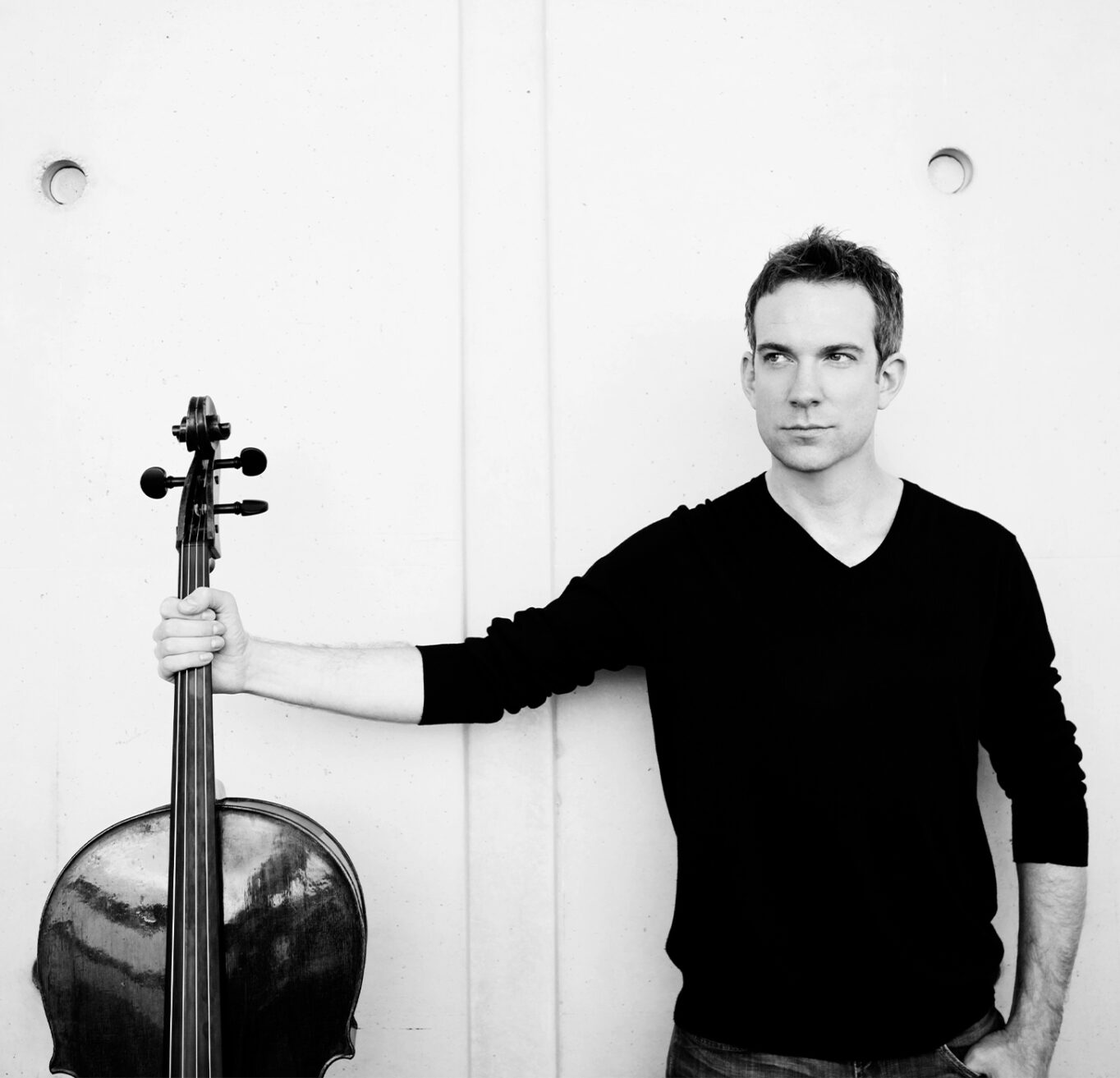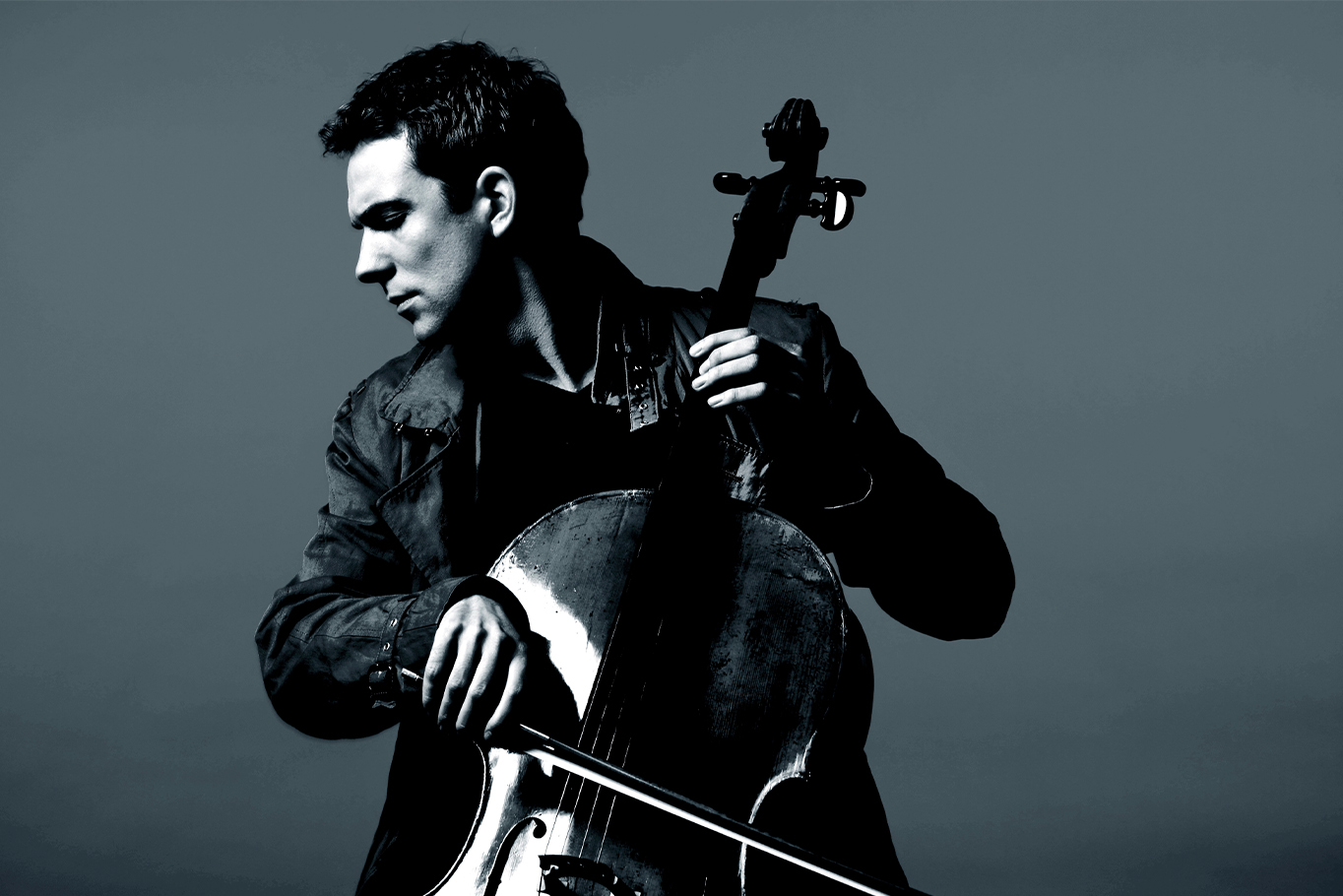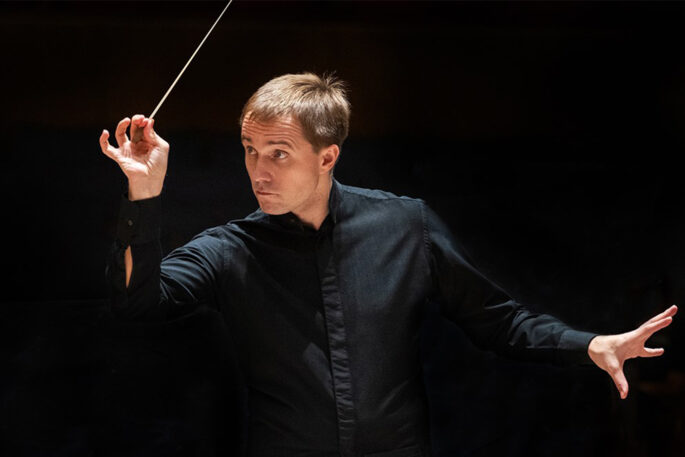
Johannes Moser wants to Connect
30 October, 2024
The celebrated German cellist explains what inspires him to keep performing and unpacks Saint-Saëns’ First Cello Concerto ahead of his first visit to Sydney since 2010 – and our final concerts for 2024.
By Hugh Robertson
‘A perfect performance doesn't mean that you play all the notes perfectly, it is if you can connect with the audience.’
If Johannes Moser has a guiding philosophy, it is this. One of the world’s leading cellists, ‘an unfailingly elegant soloist’ and ‘a musician of alacrity, power and style’ (BBC Music Magazine), whose ‘formidable technique surmounts every obstacle with apparent ease’ (International Record Review).
He is about to appear with the Sydney Symphony in our final classical concert of the year, performing Saint-Saëns’ First Cello Concerto under conductor Vasily Petrenko on a program that also features Stravinsky’s The Rite of Spring as well as the world premiere of Nineteen Seventy Three by young Australian composer Elizabeth Younan.
Moser has been a star of the classical world for close to twenty years, winning placings in prestigious competitions and awards for his recordings and performing with most of the world’s great orchestras. But he knows that technique will only get you so far, and of much greater importance is one’s ability to build rapport with people sitting in the concert hall – so he’s hoping that this interview can break the ice a little.
‘I [need to] start connecting with the audience even before I play my first note, meaning that I need to connect with them digitally first – if they are open to this medium,’ says Moser from his Berlin home during a recent window of downtime. ‘[Hopefully] they are thinking, “Ah, cool, Johannes Moser, I already know him from this video, I already know what he's about. And now I see him live. Wow, what an experience.”
Moser’s eagerness to connect with listeners comes from his own experience as a young cellist, listening obsessively again and again to records by the great Mstislav Rostropovich and building a relationship which, while one-sided, was no less impassioned. But in today’s world, with constant access to countless forms of entertainment, the likelihood of anyone developing that sort of connection is very slim.
‘It all ties back to the big old question, “What is a 21st century artist?” Because when you think about 20th century artists, they had very little competition in terms of entertainment – they had a little bit of cinema and they had bad TV. And now we have all the providers of Netflix, Amazon Prime, you have television 24/7, have 500 channels on your TV. And then here we are giving a music performance – what separates us from the competition?
‘I think it is my mission and the mission of all the other artists that are out there right now, not only to really play music well, but also to be an advocate for the music, what we're doing. And it's never been like that before…’
At this point he stops and half-corrects himself with a smile.
‘Well, maybe that's not true. If you look at Leopold Mozart, how he was advertising his son at an early age, is very similar to what social media is doing today,’ he says with a laugh. ‘He was really making the rounds and advertising him like crazy. So maybe it's been like that always, and we just have a different medium now.’
Moser isn’t Leopold Mozart, but there can certainly be no doubting his work ethic. On top of his busy schedule of performances and recordings, Moser has also increasingly devoted himself to building a significant online presence. What started out as an excuse to buy a bit of kit – ‘I’m very enthusiastic about photography and videography and I felt it was a great way to combine the two passions’ – was greatly accelerated by the pandemic, when all of a sudden concert halls went dark, and musicians had a lot of time on their hands.
Moser responded by producing videos from lockdown: lessons on technique, motivational reminders to keep practicing, masterclasses that people could join live from their own living rooms, even digital duets with his digital doppelganger Jojo Mo.
But even then, amidst the most intense periods of isolation, Moser was aware of the connections being built.
‘What I loved during COVID is that when I did my masterclass videos, I really felt that there was a community that was coming together and that wanted to partake in this experience,’ he says with a smile. ‘What really touches me is that to whatever orchestra I go to, there will be at least one person coming to me and say, “During COVID, when I was sitting at home and we were locked in, I was watching your videos and it inspired me.” And I think that's great because it means that the digital world actually translated into the actual world. So much of our online activity happens within the digital realm and it's staying there. And I think the real value happens when sort of the digital world is feeding into the real world and supporting real world experiences.
‘So giving a short shout out to say ‘here is the first few bars of the Saint-Saëns concerto, hear it live at the Sydney Opera House’ – whatever it takes for the digital world to actually support people to have a better augmented experience in the real world, I'm all for it. I think it's great.’
All that being said, however, Moser strongly feels that there is good engagement and bad engagement, and that one has to be careful to avoid posting certain content just because it will get attention.
‘It’s a peculiar balance because I think you need to look at it a little bit like a magician. Of course, you want to have a behind the scenes, but you don't want the magician to tell you his or her tricks, right? And so I feel like as an artist that wants to put himself or herself out there in terms of social media and share sort of behind the scenes, I think we need to strike a balance in a way that there is still sort of an aura of mystique.
‘Because if you trivialize music – and I see that a lot of younger artists that make very funny videos on Instagram, but actually they take masterpieces and they trivialize them – I feel it's maybe not a service to the music, and it's also not a service to the magic that is actually happening.
‘When the curtain rises and someone comes on stage, there is a sort of magic and magnetism happening. And you don't want to trivialize that moment.’

Moser’s passion for this subject is evident, but so too is his enthusiasm for that Saint-Saëns concerto. Gramophone noticed that too, when they wrote of his 2008 recording, ‘Moser plays it with overwhelming passion.’
‘Well, first of all, it speaks to me on a biographical level because it was the first concerto that I performed with orchestra,’ explains Moser. ‘I was 16 years old and, you know, excited out of my pants – what a thrill. And that was the first time when I got a taste of what it's like to be a soloist…That was the first moment when I got in touch with that magic that is happening on stage when you are a soloist conversing with an orchestra. So that's special to me.’
That enthusiasm bubbles over when asked to describe the concerto.
‘Think of popping a champagne bottle and having one glass too many and being on a complete rush,’ he says with a big smile. ‘That is sort of the French experience that you're going to get from the beginning of the Saint-Saëns Concerto.
‘And it is short, it's only 17 minutes long, and the movements are connected together, but it is a true joyride. That's how I would describe it.’
Sounds like the perfect way to end what has been a sparkling season of concerts.
Book Your Tickets
Vasily Petrenko conducts The Rite of Spring
In a concert full of drama and striking orchestral textures, Camille Saint-Saëns’ First Cello Concerto casts the cellist as our hero. German-Canadian cellist Johannes Moser is a noted interpreter of this work. Performed on his 1694 Andrea Guarneri, you will hear why it is among the greatest of all cello concertos.
27–30 November | Sydney Opera House Concert Hall
